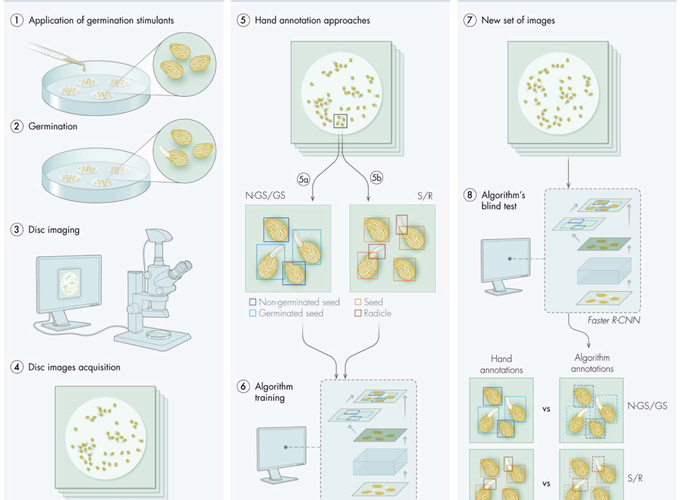SeedQuant: A deep learning-based tool for assessing stimulant and inhibitor activity on root parasitic seeds
Abstract
Witchweeds (Striga spp.) and broomrapes (Orobanchaceae and Phelipanche spp.) are root parasitic plants that infest many crops in warm and temperate zones, causing enormous yield losses and endangering global food security. Seeds of these obligate parasites require rhizospheric, host-released stimulants to germinate, which opens up possibilities for controlling them by applying specific germination inhibitors or synthetic stimulants that induce lethal germination in host’s absence. To determine their effect on germination, root exudates or synthetic stimulants/inhibitors are usually applied to parasitic seeds in in vitro bioassays, followed by assessment of germination ratios. Although these protocols are very sensitive, the germination recording process is laborious, representing a challenge for researchers and impeding high-throughput screens. Here, we developed an automatic seed census tool to count and discriminate germinated from non-germinated seeds. We combined deep learning, a powerful data-driven framework that can accelerate the procedure and increase its accuracy, for object detection with computer vision latest development based on the Faster R-CNN algorithm. Our method showed an accuracy of 94% in counting seeds of Striga hermonthica and reduced the required time from ˜5 minutes to 5 seconds per image. Our proposed software, SeedQuant, will be of great help for seed germination bioassays and enable high-throughput screening for germination stimulants/inhibitors. SeedQuant is an open-source software that can be further trained to count different types of seeds for research purposes.
